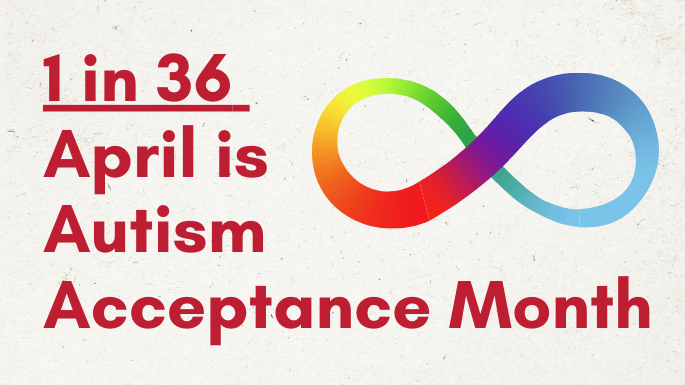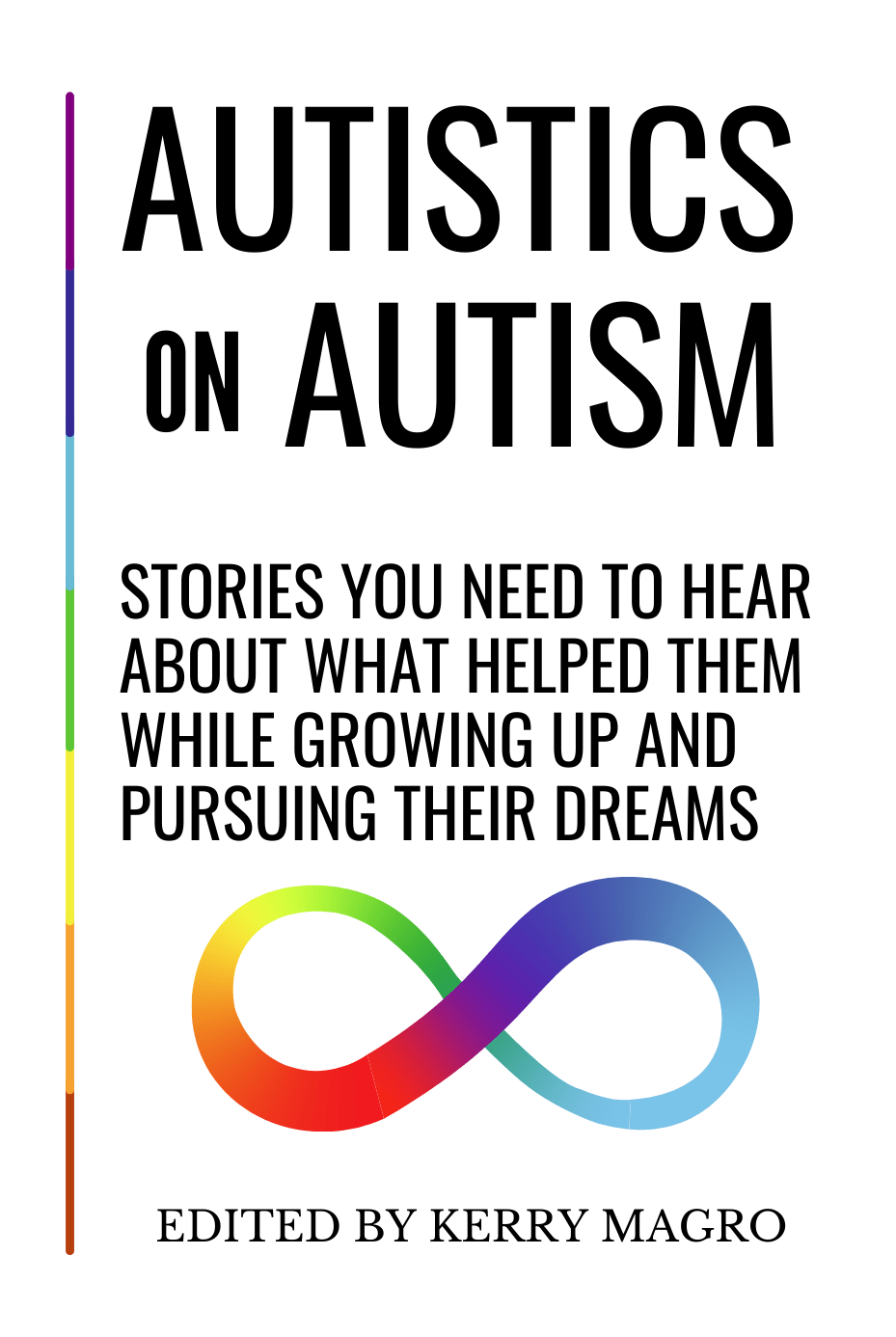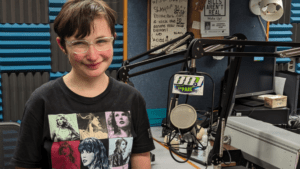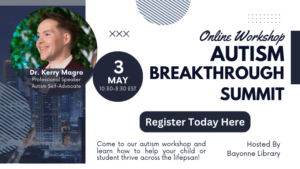Most families I talk to today are always looking for facts and statistics about autism to help better educate themselves and their communities. Thanks to wearing many hats in the autism community, today I wanted to share the top 36 things I believe our community should know about autism. Need a speaker for your company as part of professional development on tapping into an untapped talent pool for World Autism Month and/or a mentor for your teen/adult who has a developmental disability? Today, I’m a professional speaker and mentor who is on the autism spectrum who would love to work with you. Contact me here for more details!
*Note: This list is in no specific order.*
- To start… 70 million individuals worldwide have autism.
- Around 50% of individuals with autism wander from a safe environment, and over 50% go missing.
- Autism is the fastest-growing developmental disability in the United States.
- Over 7 million individuals in the United States are autistic.
- Rain Man has the most Oscar wins of any autism-related film.
- Temple Grandin has the most Emmy wins of any autism-related film.
- April is World Autism Month
- The average age of diagnosis of autism is 4 years of age.
- Half of children identified with an Autism Spectrum Disorder have average or above-average intelligence.
- A child can be diagnosed with autism as early as 18 months.
- In 2007, the United Nations declared April 2nd as World Autism Awareness Day.
- For a long time people called April “Autism Awareness Month” or “National Autism Awareness Month.” More and more people each year though are now using either “Autism Acceptance Month” or “World Autism Month” to celebrate the month.
- About 40 percent of individuals with autism are nonverbal.
- 30-50% of individuals with autism also have seizures.
- Dr. Leo Kanner was the first to describe autism in 1943.
- You can see the signs of autism in infants as young as six months.
- About 2.7% of the world population has autism.
- The Majority of adults with autism are unemployed or underemployed.
- 1 in 4 Americans currently have a disability.
- There is a wide spectrum of Autism-related disorders. If you’ve met one person with autism, you’ve met one person with autism.
- Some celebrities also are autistic (i.e. Dan Aykroyd, Susan Boyle, Daryl Hannah, Temple Grandin, John Elder Robison, etc.).
- Autism is often labeled as a social and communication disorder, although some with the diagnosis may deal with other challenges such as sensory, cognitive and motor issues.
- Drowning is the leading cause of death among children with autism.
- Suicidal thoughts are 9 times more likely in adults with autism than those without.
- Autism is a lifelong disorder. It doesn’t go away when you become an adult.
- Many people with autism have key interests that can be utilized by employers in the workplace. (i.e. just because you have a disability doesn’t mean you don’t have abilities)
- Programs like Project Lifesaver and The Big Red Safety Tool Kit by The National Autism Association are helping to educate and provide resources for our community on the issue of wandering.
- Individuals with autism who need therapy should be seen on a case-by-case basis. If you’ve met one individual with autism, you’ve met one individual with autism. Although some therapies are debated today some of the most universal therapies that are helping today are physical, occupational and speech therapy.
- Other therapies currently suggested to help individuals with autism include: Music therapy, Theatre therapy, Early Start Denver Model, Visual Schedules, Sensory Integration therapy, Applied Behavioral Analysis, Social Story Therapy, Pivotal Response Treatment, and Cognitive-Behavioral Therapy. Although therapies are pivotal for individuals with autism, other things such as a healthy diet and daily exercise are seen as ways to help them progress. In the past, a Gluten-Free diet has been seen as helpful.
- More than half of bullying is also stopped when a peer intervenes showing the importance of not only autism awareness but also autism acceptance.
- People with autism are more likely to be the victims of violence than committing a violent act.
- The majority of scholarships available for individuals with autism for post-secondary programs are for those with physical disabilities. Programs such as KFM Making a Difference are offering scholarships for those with autism to help change that conversation.
- An Individualized Education Plan (IEP) helps students with disabilities from Pre-K through High School get the services they need. If they get into a post-secondary program, they lose their IEP and instead have to advocate for their accommodations through Reasonable Accommodations.
- Many individuals with autism are self-advocates in our community and have provided powerful quotes for our community. It’s important to remember individuals with autism sometimes see autism as a part of who they are. Dr. Temple Grandin, one of the most renowned autism advocates in the world says it best with her quote “Different not less.”
- As an autism advocate I’ve traveled the world talking about disability-related issues. Some time ago I was certified as a national publicly accredited speaker from The National Speakers Association. At that time, I’ve been able to write three best-selling books on autism and work on five autism-related films. You can learn more about my background at www.kerrymagro.com and how I may be able to speak in your area, in-person or virtually, here.
- 1 in 36 individuals are currently diagnosed with autism in the United States.
Throughout the month of April and all year round I hope you share this piece to educate our community. The number of people on the autism spectrum is constantly growing. When I was growing up, the numbers were closer to 1 in 1000 individuals being diagnosed. It takes a village to make change, and we can make it a reality.
There’s no better time to start than now…
Follow my journey on Facebook, my Facebook Fan Page, Tiktok, Youtube & Instagram,
My name is Kerry Magro, a professional speaker and best-selling author who is also on the autism spectrum that started the nonprofit KFM Making a Difference in 2011 to help students with autism receive scholarship aid to pursue post-secondary education. Would you like me to speak with your company or school in person or virtually? Contact me here for more details. Help support me so I can continue to help students with autism go to college by making a tax-deductible donation to our nonprofit here.
Autistics on Autism: Stories You Need to Hear About What Helped Them While Growing Up and Pursuing Their Dreams, will be released on March 29, 2022 on Amazon here for our community to enjoy featuring the stories of 100 autistic adults. 100% of the proceeds from this book will go back to our nonprofit to support initiatives like our autism scholarship program. In addition, this autistic adult’s essay you just read will be featured in a future volume of this book as we plan on making this into a series of books on autistic adults.















